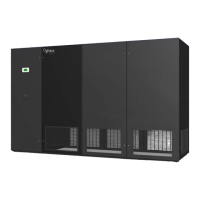34
Note: Risk of corrosion can cause equipment damage. Contact a water consultant
about water quality, corrosion and freeze protection requirements. Water chemistry
varies greatly by location, as do the required additives, called inhibitors that reduce the
corrosive eect of the uids on the piping systems and components. The chemistry of the
water used must be considered, because water from some sources may contain corrosive
elements that reduce the eectiveness of the inhibited formulation. Preferably, surface
waters that are classied as soft and are low in chloride and sulfate ion content should
be employed. Proper inhibitor maintenance must be performed to prevent corrosion
of system components. Consult glycol manufacturer for testing and maintenance of
inhibitors.
Commercial ethylene glycol, when pure, is generally less corrosive to the common
metals of construction than water itself. It will, however, assume the corrosivity of the
water from which it is prepared and may become increasingly corrosive with use if not
properly inhibited.
6.3 Internal (Fluid) Volume – Fluid Coolers
6.3.1 Fluid Cooler Information
The information regarding uid cooler (or often referred to as a “dry cooler”) internal volume, the volume
of the inter-connecting piping and the freezing point of aqueous solutions can be found in the individual
Fluid Cooler User Manuals which should be referred to for more complete details.

